What is the law of negligence? In this article, you will find out what is negligence, what is negligence in law, how the law of negligence works, and what defenses to negligence are available. We will discuss what is negligence law, how to sue for negligence, affirmative defenses to negligence, types of negligence like foreseeable negligence, and the negligence tort elements. We will also touch on the concept of duty in negligence, the act of negligence, and negligence claim elements. Learn the definition of negligence, and the essentials of Missouri negligence law to understand your rights. From the different elements of negligence to what constitutes a negligence claim, find out what you need to know today with our negligence attorneys at Royce Injury Lawyers!
What Is Negligence?
The definition for negligence in the Cambridge dictionary is “a failure to be careful in something you do, especially in a job where your actions affect other people.” The definition and concept of negligence are different in law than the traditional use of the word. Under the Law of torts, negligence is defined as a breach of a legal duty to take care which results in damage undesired by the defendant to the plaintiff. Negligence is a type of tort that gives a person the right to take civil action against any loss, property damage, or injury caused to them by another person who owed them a duty of care. In injury claims, the element of duty of care plays a central role in proving the other party’s fault. Your chances of winning fair compensation will depend, among other factors, on whether or not the at-fault party had a legal obligation of duty to exercise reasonable care towards the aggrieved party. For example, drivers have a general duty to exercise proper care toward other people on the road while – drivers, passengers, pedestrians, etc. They are legally bound to observe the traffic rules to ensure the safety of everyone on the road. Failure to do so would result in a negligence lawsuit in the event of an accident.
Types of Negligence
In personal injury claims, the law of torts, and the law of negligence, the various kinds of negligence are as follows:
- Vicarious liability: This kind of negligence holds one person legally answerable for the actions of the other person. One of the most emblematic cases of vicarious liability is the bond between employer and employee. An employer can be held liable for any acts or omissions of an employee that may have caused hurt to a third party that falls within the scope of the employment duties under the employment contract.
- Ordinary negligence: It is the most prevalent kind of negligence. It occurs when a person with the duty of care towards another person fails to discharge their obligation and causes injury or harm to them. Common examples of this kind of negligence are traffic accidents, lack of adequate signs on construction sites, etc.
- Gross negligence: It is the most severe kind of negligence that depicts an utter lack of care and concern about other people’s safety with your actions. For instance, driving under the influence, reckless driving, risky behavior that may result in injury at the workplace, etc.
- Contributory negligence: This type of negligence includes the plaintiff’s contribution to the injury or harm. Depending on the circumstances, the plaintiff is not entitled to receive damages even if the negligence of the defendant is proven.
- Comparative negligence: In this type of negligence, both the Plaintiff and the Defendant are at fault. Damages awarded under contributory negligence are reduced while keeping in mind the degree of the plaintiff’s fault. For example, a person tries to cross a road while the signal is not red and gets hit by a car.
Elements of Negligence
The ingredients or elements of negligence are as follows:
- A duty of care was owed to the plaintiff by the defendant
- Breach of duty of care by the defendant
- Plaintiff suffered damage due to the breach of duty by the defendant
- Causation
- Evaluation of hurt and the amount of compensation entitled to the plaintiff
What Types of Cases Involve Negligence Claims?
There are different types of cases involving negligence claims. They vary from State to State. However, under Missouri negligence law, generally, the common types of negligence claims are:
- Traffic accident lawsuits: They may include car accidents due to recklessness, rash driving, driving under the influence, negligent driving, drowsy driving, etc.
- Slip and Fall accidents lawsuit: Construction sites without sufficient warning signs or safety cause slip and fall injuries.
- Medical malpractice lawsuit: Injuries or hurt caused to patients by medical practitioners due to their negligence in maintaining are professional integrity.
- Workplace injuries and accidents lawsuit: Any accidents that happen in the workplace because of the lack of safety measures.
- Truck accident lawsuits: Rear-end collisions, head-on truck crashes, and truck rollovers are some examples of negligence cases.
What is the Deadline for Filing a Negligence Claim?
The deadline to file for a negligence claim is up to three years in most cases. However, depending on the nature and circumstances of the case, the limitation of three years is significantly reduced. For example, in negligence cases involving government agencies and entities, the Statute of Limitation prescribes a shorter limitation period to file the negligence claim. In some exceptional cases, the limitation period can be up to six years, provided that the plaintiff succeeds in proving a valid reason for the delay in bringing the claim to the court.
The word negligence is often used in daily life. However, the meaning of negligence is different in law than its general meaning in English. There are different types and elements of negligence, and many injury lawsuits involving traffic accidents, slips, and falls, medical malpractice, workplace injuries, etc., are covered under negligence cases. Consulting an experienced attorney having expertise in injury laws and the law of torts under negligence will give you insight into how to process your negligence claim. They will also help you understand the legal options available to you.
- Key Facts About Missouri’s No Pay No Play Law - 28th May 2025
- Understanding Taxes on Personal Injury Settlements - 23rd May 2025
- Navigating Your Rights After a Car Crash While Pregnant - 21st May 2025


